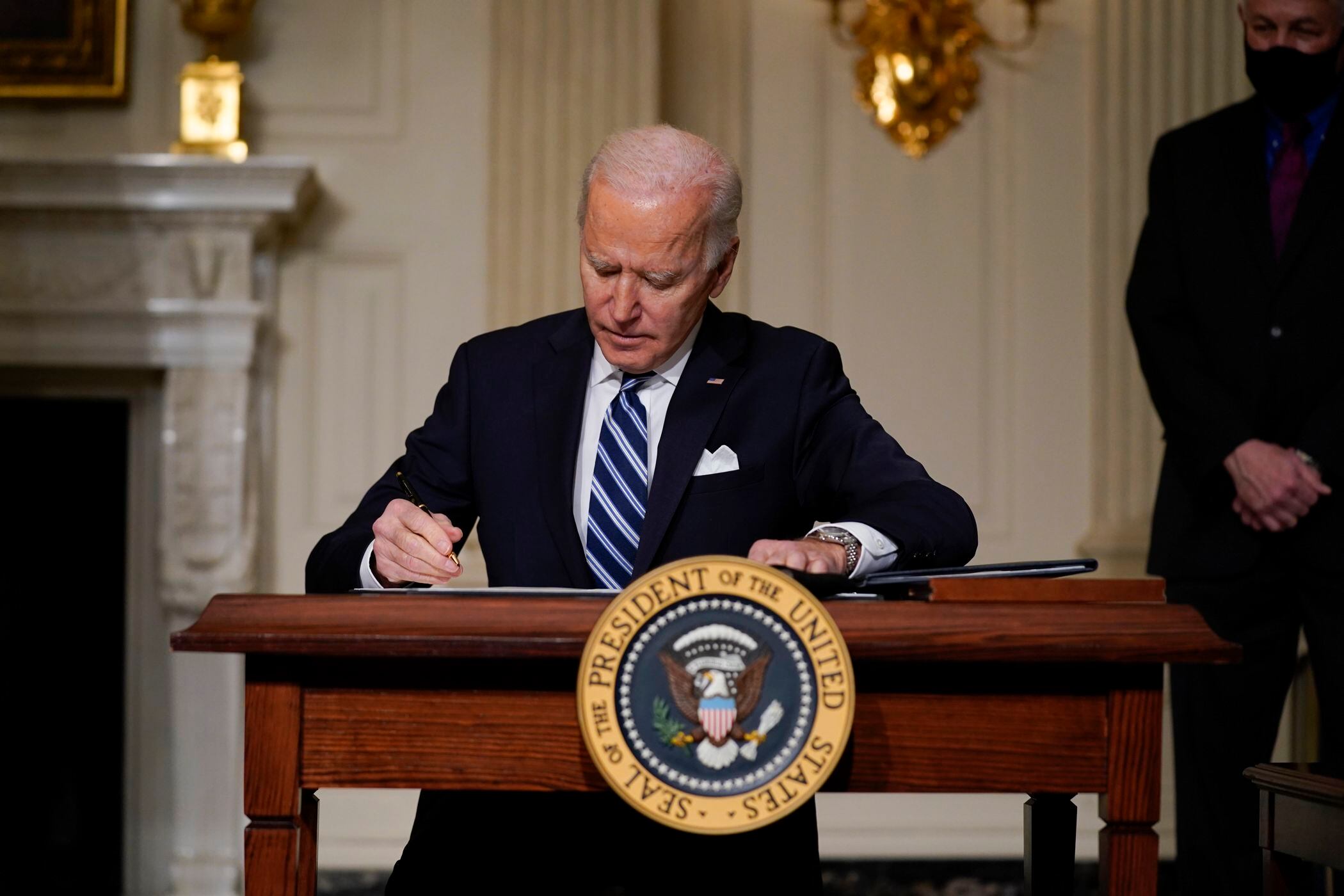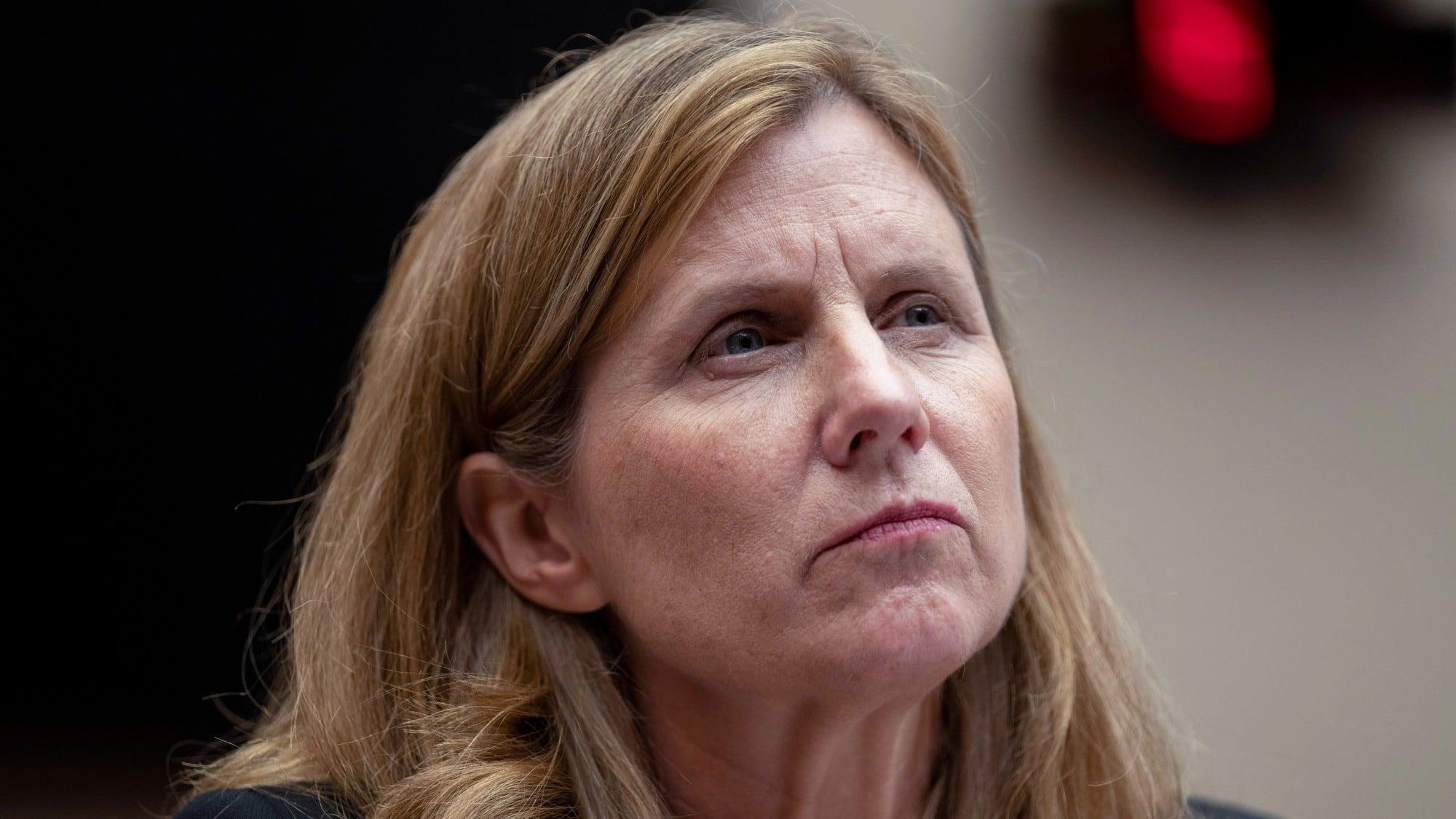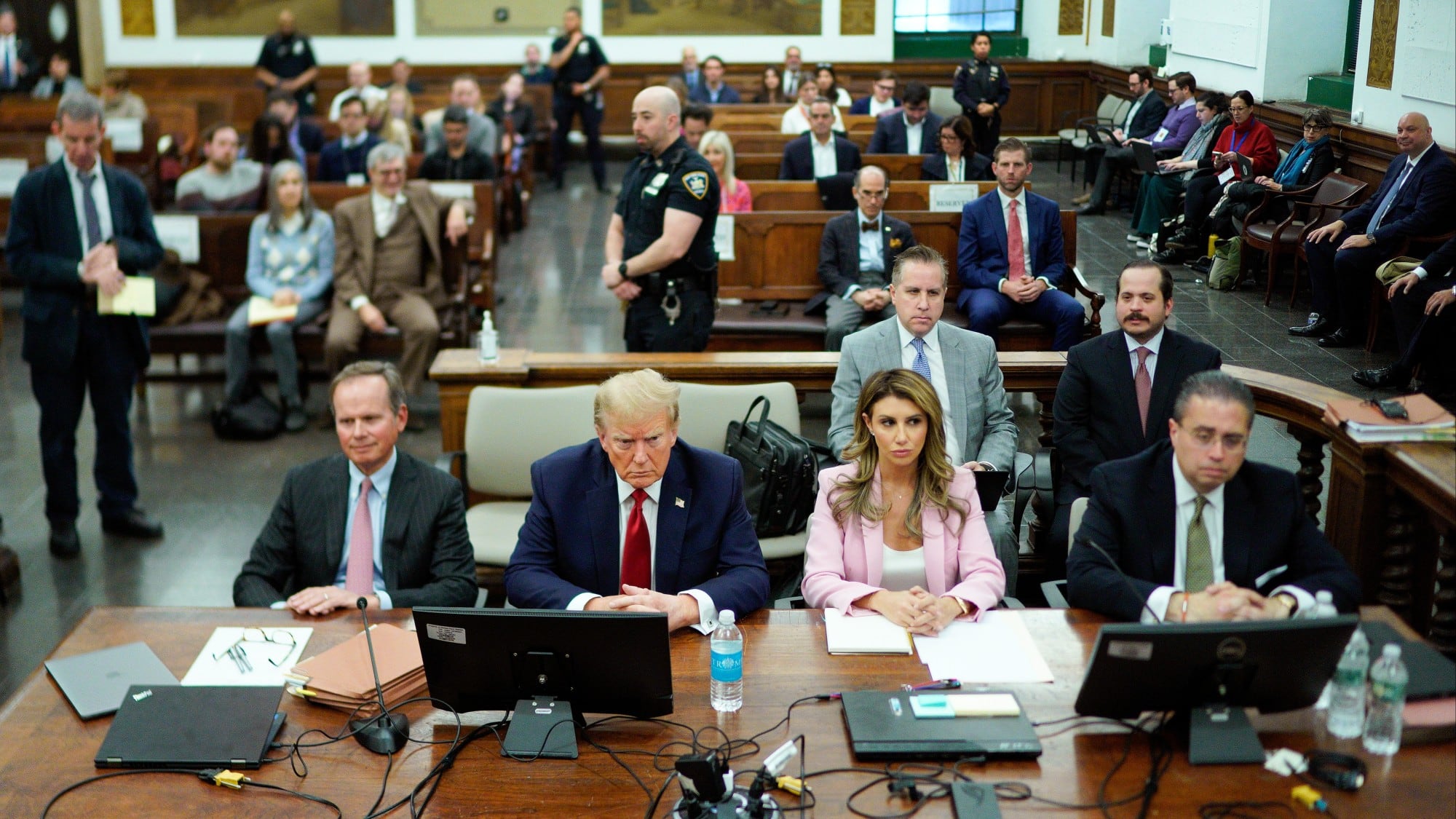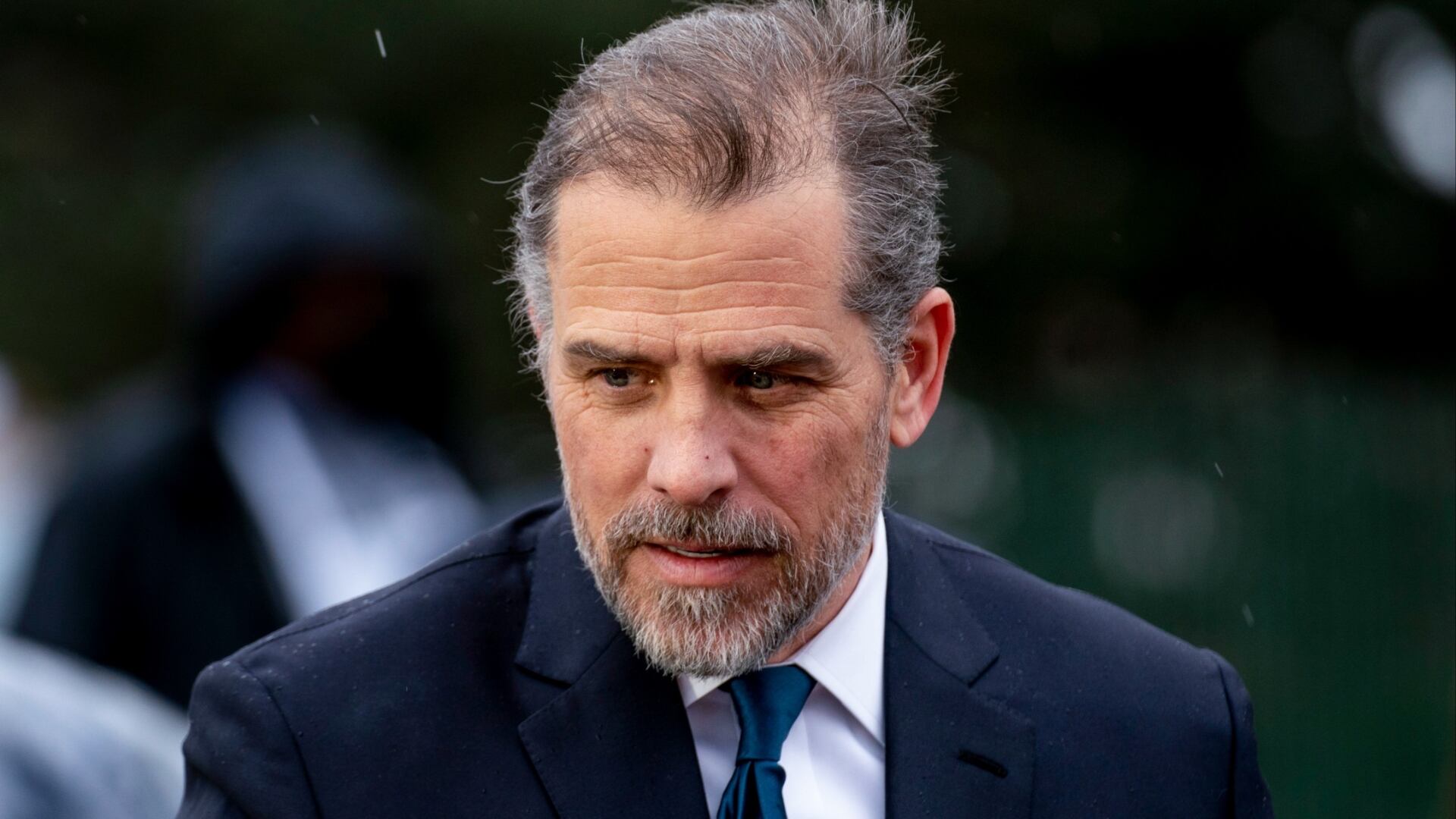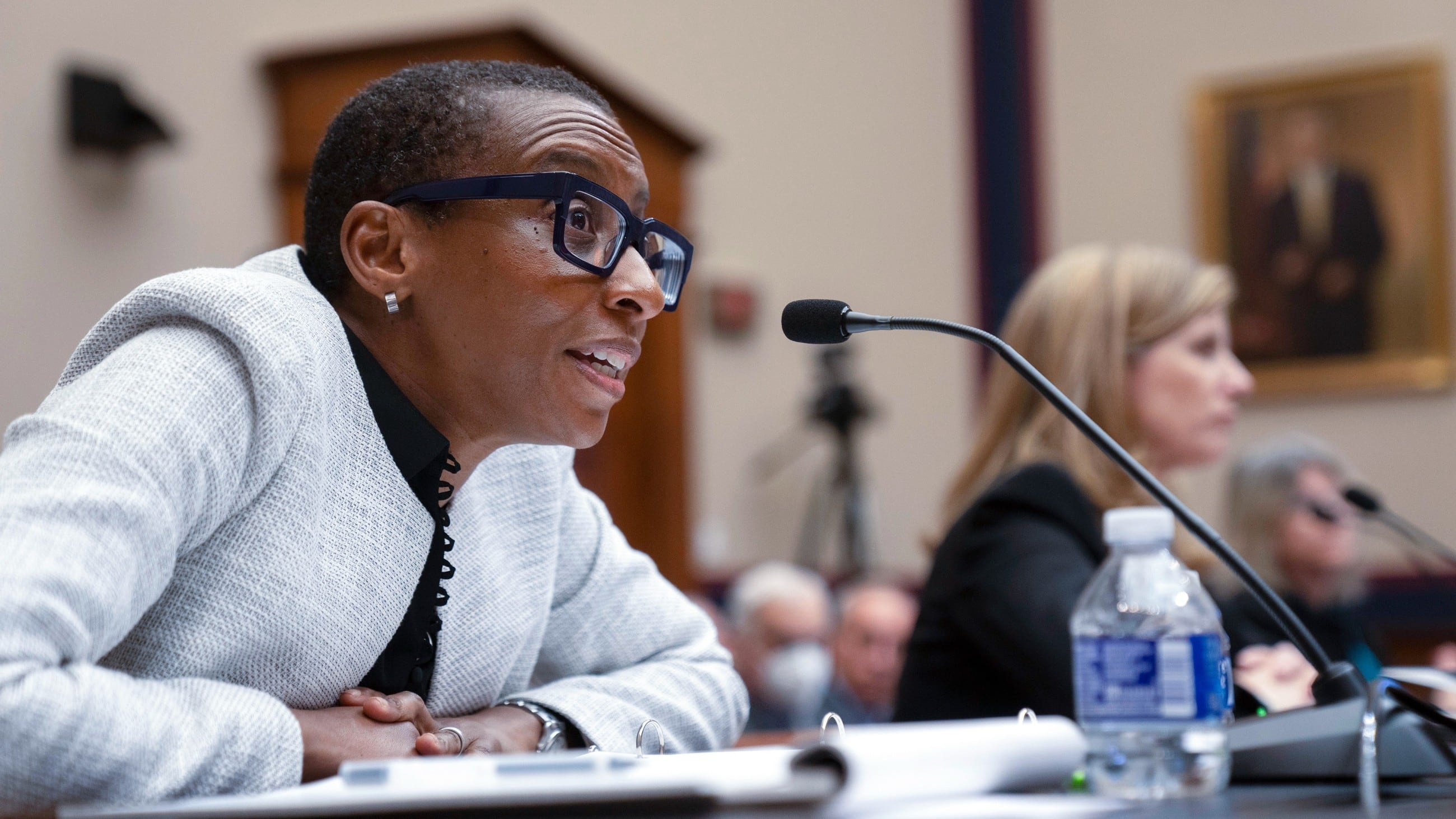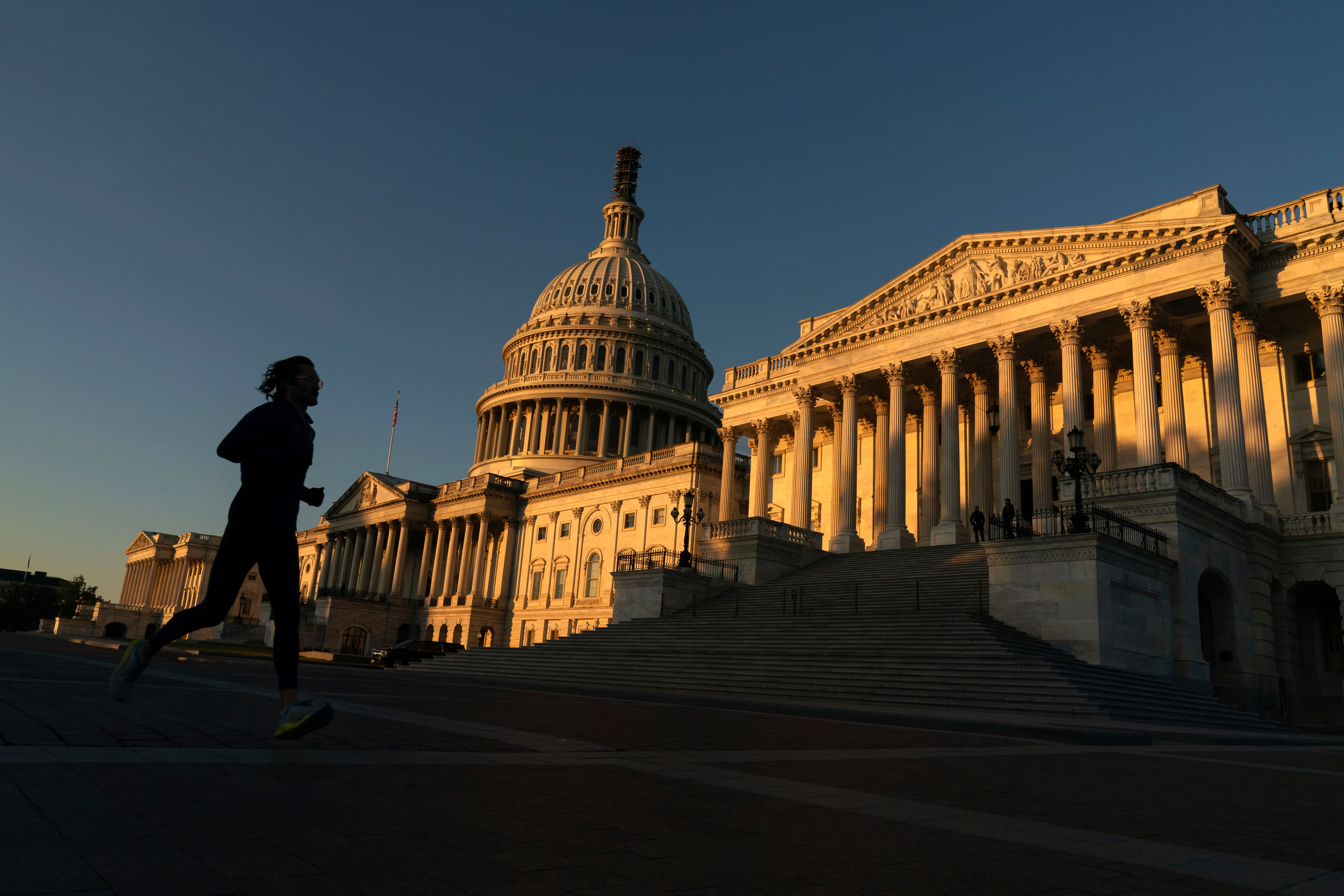By Matthew Daly and Ellen Knickmeyer
In the most ambitious U.S. effort to stave off the worst effects of climate change, President Joe Biden issued executive orders Wednesday to cut oil, gas and coal emissions and double energy production from offshore wind turbines.
The orders target federal subsidies for oil and other fossil fuels and halt new oil and gas leases on federal lands and waters. They also aim to conserve 30 percent of the country’s lands and ocean waters in the next 10 years and move to an all-electric federal vehicle fleet.
Biden’s sweeping plan is aimed at slowing human-caused global warming, but it also carries political risk for the president and Democrats as oil- and coal-producing states face job losses from moves to sharply increase U.S. reliance on clean energy such as wind and solar power.
“We can’t wait any longer'' to address the climate crisis, Biden said at the White House. ”We see with our own eyes. We know it in our bones. It is time to act.''
He said his orders will “supercharge our administration's ambitious plan to confront the existential threat of climate change.”
Biden has set a goal of eliminating pollution from fossil fuel in the power sector by 2035 and from the U.S. economy overall by 2050, speeding what is already a market-driven growth of solar and wind energy and lessening the country's dependence on oil and gas. The aggressive plan is aimed at slowing human-caused global warming that is magnifying extreme weather events such as deadly wildfires in the West and drenching rains and hurricanes in the East. ,
Biden acknowledged the political risk, repeatedly stating that his approach would create jobs in the renewable energy and automotive sectors to offset any losses in oil, coal or natural gas.
“When I think of climate change and the answers to it, I think of jobs,'' Biden said. "We’re going to put people to work. We’re not going to lose jobs. These aren’t pie-in-the-sky dreams. These are concrete actionable solutions. And we know how to do this.''
In a change from previous administrations of both parties, Biden also is directing agencies to focus help and investment on the low-income and minority communities that live closest to polluting refineries and other hazards, and the oil- and coal-patch towns that face job losses as the U.S. moves to sharply increase its reliance on wind, solar and other other energy sources that do not emit climate-warming greenhouse gases.
Biden pledged to create up to a million jobs building electric cars, as well as installing solar panels, wind turbines, "capping abandoned walls, reclaiming mines, turning old brownfield sites into the new hubs of economic growth.''
Even so, Republicans immediately criticized the plan as a job killer.
“Pie-in-the-sky government mandates and directives that restrict our mining, oil, and gas industries adversely impact our energy security and independence,'' Rep. Cathy McMorris Rodgers of Washington state, the top Republican on the House Energy and Commerce Committee.
"At a time when millions are struggling due to the COVID-19 pandemic, the last thing Americans need is big government destroying jobs, while costing the economy billions of dollars,'' she said.
Biden also is elevating climate change to a national security priority. The conservation plan would set aside millions of acres for recreation, wildlife, and climate efforts by 2030 as part of Biden’s campaign pledge for a $2 trillion program to slow global warming.
President Donald Trump, who ridiculed the science of climate change, withdrew the U.S. from the Paris global climate accord, opened more public lands to coal, gas, and oil production, and weakened regulation on fossil fuel emissions. Experts say these emissions are heating the Earth's climate dangerously and worsening floods, droughts, and other natural disasters.
Georgia Tech climate scientist Kim Cobb called the executive orders an “excellent start” for the new administration.
“If this Day 7 momentum is representative of this administration’s 4-year term, there is every reason to believe that we might achieve carbon neutrality sooner than 2050," even as key roadblocks lie ahead, Cobb said.
Biden's actions came as his nominee for energy secretary, former Michigan Gov. Jennifer Granholm, faced deep skepticism from Republicans as she tried to pitch the president’s vision for a green economy.
“The last Democratic administration went on a regulatory rampage to slow or stop energy production,” said Wyoming Sen. John Barrasso, a leading Republican on the Senate Energy and Natural Resources Committee. "I’m not going to sit idly by .. if the Biden administration enforces policies that threaten Wyoming’s economy.''
Granholm, as the leader of a state devastated by the 2008 recession, said she knew what it was like to “look in the eyes of men and women who have lost their jobs through no fault of their own.” She promoted emerging clean energy technologies, such as battery manufacturing, as an answer for jobs that will be lost as the U.S. transitions away from fossil fuels.
Granholm and other officials said the investment in cleaner energy national will net millions of jobs. But that probably will take years to happen, and the orders will face intense opposition from oil and gas and power plant industries, as well as from many Republican — and Democratic — lawmakers.
“The environmental left is leading the agenda at the White House when it comes to energy and environment issues,″ said Kathleen Sgamma, president of the Western Energy Alliance, which represents oil and gas drillers in Western states. The group filed a legal challenge soon after Biden signed the orders.
Biden is seeking to double energy production from offshore wind after the Trump administration slowed permit review of some giant offshore wind turbine projects. Significantly, he is directing agencies to eliminate spending that acts as subsidies for fossil fuel industries.
“The fossil fuel industry has inflicted tremendous damage on the planet. The administration’s review, if done correctly, will show that filthy fracking and drilling must end for good, everywhere,'' said Kierán Suckling, executive director at the Center for Biological Diversity, an environmental group that has pushed for the drilling pause.
Oil industry groups said Biden had already eliminated thousands of oil and gas jobs by killing the Keystone XL oil pipeline on his first day in office.
“Do not be fooled, this is a ban'' on drilling, said Dan Naatz of the Independent Petroleum Association of America. ”The Biden administration’s plan to obliterate the jobs of American oil and gas explorers and producers has been on clear display.''
The pause in onshore leasing is limited to federal lands and does not affect drilling on private lands, which is largely regulated by states. It also will not affect existing leases and could be further blunted by companies that stockpiled enough drilling permits in Trump’s final months to allow them to keep pumping oil and gas for years.
The order exempts tribal lands, mainly in the West, that are used for energy production.
Biden also will direct all U.S. agencies to use science and evidence-based decision-making in federal rule-making and announce a U.S.-hosted climate leaders summit on Earth Day, April 22.
___
Associated Press writers Alexandra Jaffe and Brian Slodysko contributed to this report.
Updated on January 27, 2021, at 3:20 p.m. ET with the latest information.
